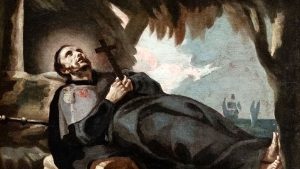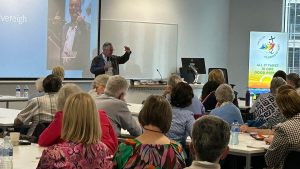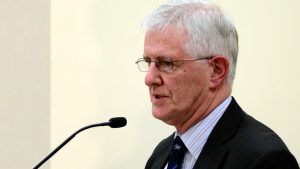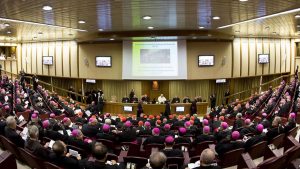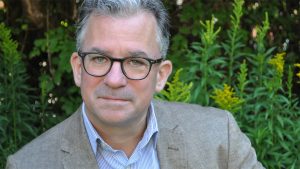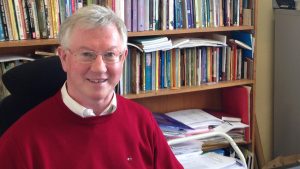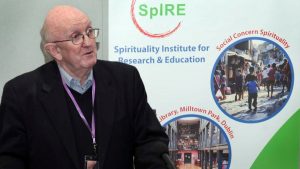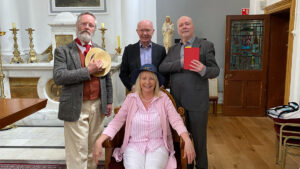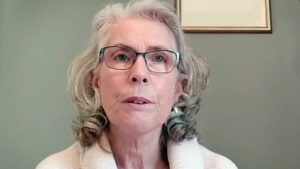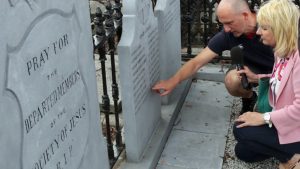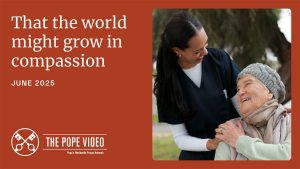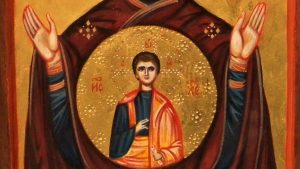A truly magisterial Jesuit: Laszlo Orsy RIP
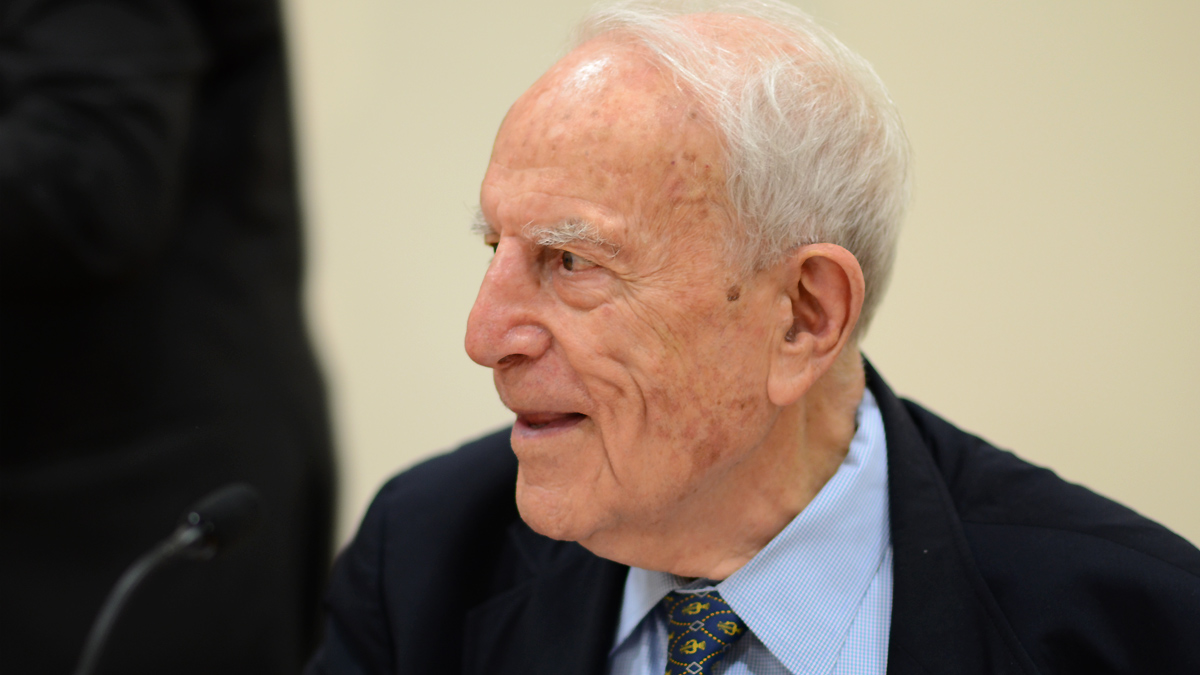
Ladislas Orsy SJ, the distinguished Hungarian theologian, canon lawyer and friend of the Irish Jesuits, died on 3 April 2025. He was 103 years old. Fr Orsy joined the Jesuit Order 1943. After completing philosophical and theological studies in Europe, he earned several advanced degrees, including doctorates in both theology and canon law. He studied at the Gregorian University in Rome and earned a doctorate in canon law from the Pontifical Lateran University.
His long academic and pastoral career spanned much of the 20th and early 21st centuries, marked by significant contributions to the development of Church law and theology. He taught at various institutions, including Georgetown University, Fordham University, and universities in Europe, often focusing on canon law, ecclesiology, and the relationship between law and theology.
On the invitation of his friend and fellow Jesuit theologian Gerry O’Hanlon SJ, Fr Orsy came to Ireland to in 2012 . He delivered the inaugural Michael Hurley SJ memorial lecture in the Arrupe Room, Milltown Park, (see photo below) in which he outlined what the vision of the Second Vatican Council ». He himself was an eye-witnesses to the proceedings of the Council and an advisor to some of the bishops. Click here to watch a video of Fr Orsy SJ in conversation with Pat Coyle, Director of Irish Jesuit Communications ».

The following two years he returned to Milltown Park to deliver the Michael Hurley SJ memorial lectures. In 2013 his chosen topic was a profound reflection on the Vatican II document ‘Dignitatis Humanae’ or the ‘Declaration on Freedom of Religion’ ». The following year his talk on ‘Divorce, Remarriage, and the Eucharist – the State of the Question: A Lecture Exploring the Limits of God’s Mercy’ » drew a huge crowd again to the Arrupe Room on Tuesday 10 June. It was a challenging topic over which Cardinals have clashed openly but Fr Orsy was well up to the task of uncovering possible paths of resolution.
Throughout his career, Fr Orsy has emphasized the dynamic, evolving nature of Church law and theology. He advocated for a more pastoral and flexible understanding of canon law, insisting that laws must serve the spiritual growth and freedom of the faithful rather than become rigid structures.
His scholarly work was influential during and after the Second Vatican Council (1962–1965), where he supported reforms promoting collegiality, dialogue, and the ongoing development of Church structures. He saw canon law not as an obstacle but as a tool to foster Christian life and was a leading advocate for the idea that Church structures and rules must evolve with new understandings, always rooted in the tradition but open to the Spirit’s ongoing guidance.
Among his major publications are, Marriage in Canon Law (1986), The Church: Learning and Teaching (1987), and Receiving the Council: Theological and Canonical Insights and Debates (2009)
Commenting on Receiving the Council , Gerry O’ Hanlon SJ says that Orsy, in his typically careful, scholarly but radical way, anticipated many of the characteristics of the reform of Pope Francis under the rubric of synodality. “For him Canon Law was always in function of life, of the gospel,” Gerry notes, quoting from pg 12 of the book, in which Orsy reflects on the excessive focus on papal primacy contrasting it with the need for ‘communio’ (synodality). “We are at a groundbreaking stage,” Orsy writes. “For this reason, we ought to formulate our questions with utmost care. Our aim is to search for better balances without damaging vital forces.”
Gerry O’Hanlon also references some of the suggestions Orsy offers regarding how the church might shift responsibilities from the hierarchy to the rest of the faithful. “Our tradition admits the participation of laypersons in decision-making processes, which are an integral part of the governance of the church, “Orsy writes. “Granted, the unique character of the episcopal power ought to be respected, but the power given through baptism must not be frustrated. To work out the formalities and the details, creative theologians and canon lawyers are needed. They could start their work immediately.”
In a further suggestion (discussed and developed later during the synodal processes instigated by Pope Francis) Orsy writes, “Laypersons could be voting members of synods or councils. (Some earlier ecumenical councils permitted it; surely, it was not a doctrinal deviation). There is no theological reason why persons without orders could not be members of some decision-making bodies in the ordinary administration of the church, e.g., some of the Roman congregations and offices.”
Fr Orsy also had an interesting take on the suggestion that laypersons should be made cardinals in order to participate in such tasks. “This is hardly a good idea,” he says, “because it demeans the dignity that baptism confers. They should be invited for what they are: people of God.” He also remarks that laypersons could be in charge of the administration of the assets of the church. And that those duly qualified could be officially designated as preachers of the Word” (note 17, pp 44-45).
In those same pages he muses about the reaction of St Paul the Apostle if he ever returned to this world and found a church where silent obedience is the rule far and wide, and lacking in the gifts of the Spirit. In a footnote to this, Orsy writes: “Many Christian women may sigh and say: Was it not Paul who wrote that …’the women should keep silence in the churches…’ (I Cor 14:34)? How can we expect him to stand up for us? The correct answer may well be that Paul (like Peter) had his weak moments; he too was a fragile person. After all, on a deeper doctrinal level, he wrote that in the church ‘…there is neither male nor female; for you are all one in Christ Jesus’ (Gal 3: 28). Paul failed in adjusting his practical advice to the doctrine he preached, as Peter failed to lived up to received teaching in Antioch when he refused to eat with the Gentiles. Paul responded forcefully and corrected him. In the history of the church women such as Catherine of Siena, Teresa of Avila (now doctors of the church), even more, countless women who handed down the faith through succeeding generations have responded forcefully to Paul and corrected him. Looking at these women, what would Paul say? Probably, certainly, ‘I stand corrected’” – note 18, pg 45.
Even in his much later years, Fr Orsy continued to write and teach, a respected voice in discussions about Church reform, authority, and the future of Catholic theology. He will indeed be missed by his friends here in Ireland. As Gerry O’Hanlon rightly says, “He was a lovely man, with a glint of humour in his eyes, and an ability to see the bigger picture no matter what.”
Ar dheis Dé go raibh a anam dílis.


